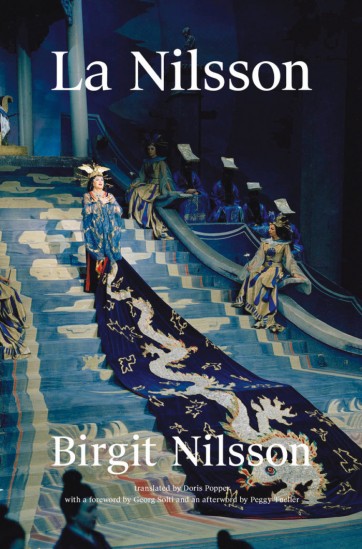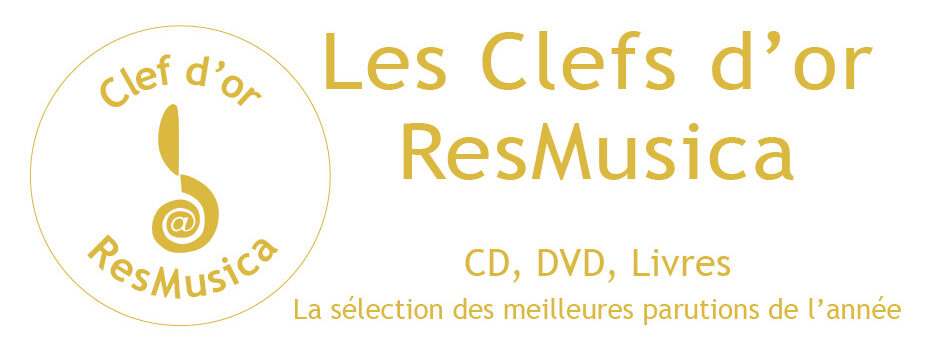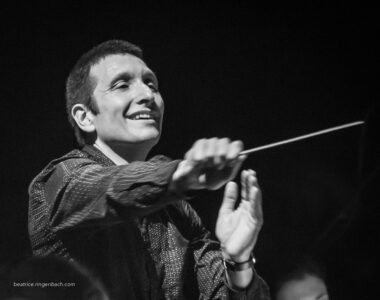Plus de détails
La Nilsson, My Life in Opera. Birgit Nilsson. Preface by Georg Solti. Transleted from the German by Doris Jung Popper. Second edition. Verlag für moderne Kunst 308 pages. 34 €. 2018
This autobiography of Madame Bertil Niklasson, stage name Birgit Nilssson, written in Swedish, translated into Danish, then German, then English, is solid, frank, direct, never reckless, always spontaneous and witty. No detours, without artifice, without secondary or superfluous references to Marx, Freud, or Jesus…It goes straight to the point and scores a bulls-eye.

Let's admit it from the outset: Madame Nilsson has an astonishing, overwhelming memory of events that transpired over the course of a very full career. Or otherwise, she's kept a carefully maintained diary in which she took note, day after day, of dates, locations, concerts, operas–a complete rendering of a truly phenomenal life. Nothing is omitted, nothing forgotten. Since 1946…We are charmed by the endless list of cities that she visited frequently (Bayreuth, Vienna, Rome, Glyndebourne, Munich, Buenos Aires, San Francisco, Chicago, Milan, Venice, Parma, etc.), by the list of her « accompanists, » thirty-three in all (Fritz Busch, Hindemith, Sawallisch, Jochum, Ehrling, Keilberth, Steinberg, Knappertsbusch, Klobucar, Karajan, Prêtre, Maazel, Solti, Krips), by those countless dream casts, that she carefully and enthusiastically describes: Leonie Rysanek, Wolfgang Windgassen (with whom she sang Tristan more than 90 times!), Ruth Hesse, James King, Regina Resnik, Irene Dalis, her best Brangäne, she said, Hans Hotter, Walter Berry, Grace Hoffman, Hans Hopf… In 1977, a Frau with Leonie Rysanek, Ruth Hesse, James King, Walter Berry. A Lohengrin with Windgassen, Varnay, Uhde, Fischer-Dieskau. For all of them, Nilsson has a good word—with two exceptions: Madame Nilsson has some scathing comments with regard to Herberrt von Karajan and Sir Rudolf Bing.
The fourteen chapters of this book, La Nilsson, My Life in Opera, unfold merrily, in chronological order, only at times interrupted here and there by some passionately heartfelt events that she had to recount that very moment (for example, in chapter 1, her Met debut) or some resentful remark, that she couldn't hold back, about Karajan or Bing. Some fascinating pages about her difficult youth, then the choir in a neighboring village. « Singing » lessons follow, with Albert Runbäck and Ragnar Blennow, among others. Then she dedicates an entire chapter to the Royal Academy of Stockholm, where she studied from 1941 to 1946. She debuted at Stockholm's Royal Swedish Opera in a production of Freischütz, under the direction of Leo Blech, followed by a Macbeth, with Sigurd Björling in the title role, conducted by Fritz Busch. As she writes, « The rest is history. »
The text is embellished with portraits, courteous, thoughtful, sometimes teasing, sometimes biting, even back-stabbing. Sketches of Wieland Wagner, whose directing she liked a great deal; or of Franco Corelli, with his never-ending high C's ; or of Winifred Wagner and Astrid Varnay. Spontaneous and trenchant descriptions enliven the narrative: Bayreuth, for example, with its cold, rain, schedules, and that evening meal, 90 minutes long ; Rome and Italy, which she learns to appreciate, despite its unpredictable, capricious audiences ; Vienna, which she adores, and where she holds sway for 28 years. A thousand incisive and sarcastic anecdotes pepper the text: the disappearance of Ramón Vinay between Acts I and II of an extremely animated Tännhauser ; her arrival in Zurich, where they expect her to do a Forza, while she was planning to do a Ballo; in Vienna, the ridiculous comparison of her vocal cords with Christa Ludwig's, by a certain Dr. Kürsten, an expert in such things.
Birgit Nilsson is also strongly up-in-arms against the overweening power of certain stage directors, tearing into some of them, and devoting an entire chapter to their fans and fanatics. She enriches her narrative further with striking analyses of certain roles—Senta (whom she hates), Isolde, Elisabeth (whom she hates), and Turandot. It's a great party… Confidences (no longer secret) and confessions spring up all over the place. With love and nostalgia, Nilsson recalls her fencing lessons at the Royal Academy of Music in Stockholm, her first Salomé, with two months of rehearsal, Leontyne Price's Liù, a Donna Anna in Buenos Aires, with George London and Lisa della Casa, a Walküre in Vienna (Ludwig Suthaus, Leonie Rysanek, Gottlob Frick, Hans Hotter, Jean Madeira…), Gigli's Cavaradossi, a Missa Solemnis conducted by Erich Kleiber, her colleagues and teachers from the Royal Academy of Music in Stockholm, Günther Rennert, Karl Böhm and his abrupt departure from Vienna… She concludes with a final concert in 1984.
A tone, made up of fragments, vexations, spurts of anger, but also of complete calm, of wistfulness and affection; a style, brisk and lively, filled with cheerful energy, with sparkling joyousness, increasing (as if it were needed) the immense pleasure that we experience from one end of this superb autobiography to the other, which concludes with an excellent discography.
Translated by Miriam Ellis
Plus de détails
La Nilsson, My Life in Opera. Birgit Nilsson. Preface by Georg Solti. Transleted from the German by Doris Jung Popper. Second edition. Verlag für moderne Kunst 308 pages. 34 €. 2018









